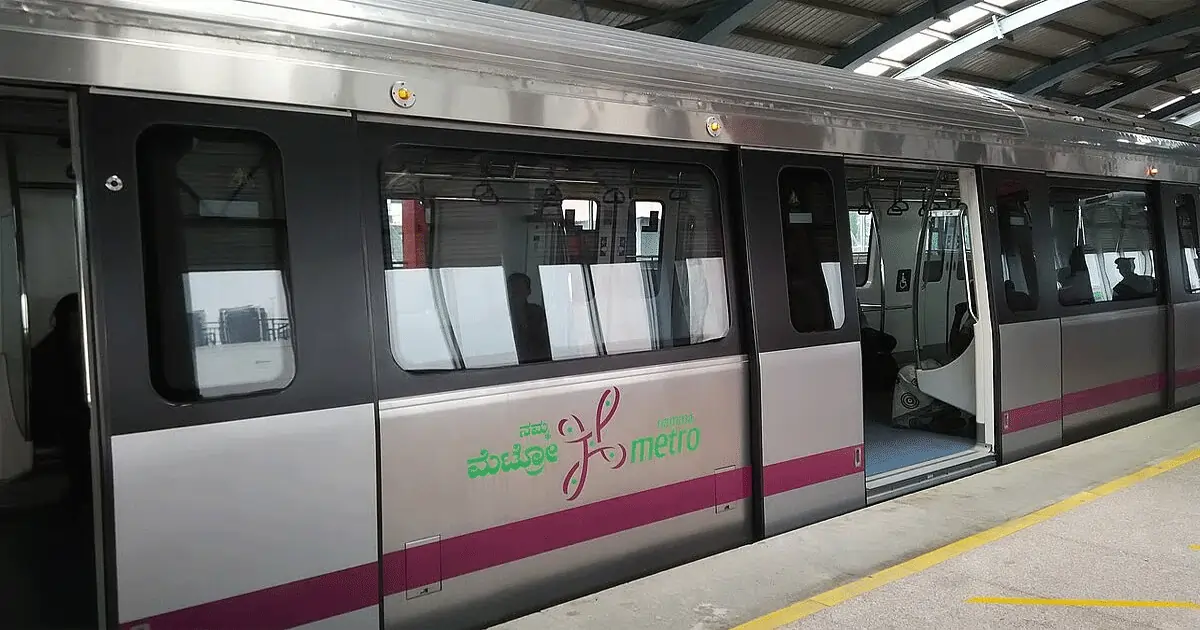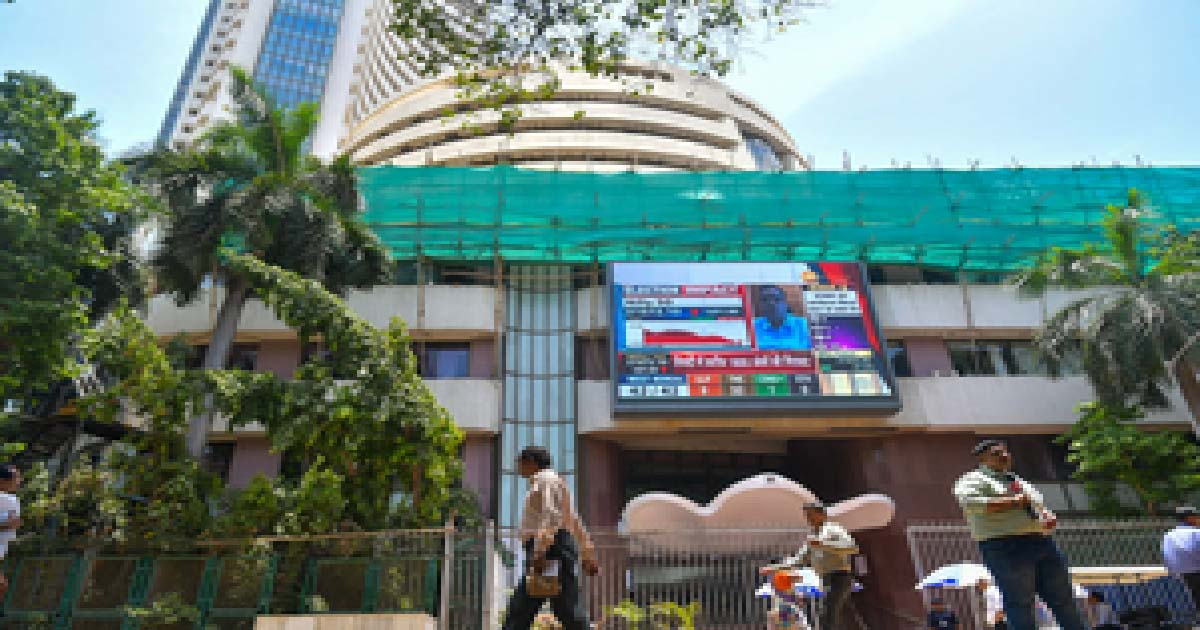Business
‘Centre Decided To Hike Bengaluru Metro Prices’: Karnataka CM Siddaramaiah Passes The Buck Onto BJP Government Amid Outrage

Amid outrage and protests over a recent hike in metro fares in IT capital Bengaluru, the Karnataka CM Siddaramaiah has issued a clarification on the matter.
CM Issues Clarification
In a post on his official X account, the state CM said, “Clarifying the facts on Bengaluru Metro fare hike.”
He went to attribute the rise in fares to the central government in Delhi, and said, “The fare revision was decided by a Union Government-appointed committee, and BMRCL is legally bound to implement it. The Karnataka Government had no role in this decision.”
The CM also added, “BJP must stop misleading the people and take responsibility for its actions.”
The CM’s clarfictaions highlighted the following points
Since 2017, metro fares were not revised, and BMRCL itself wrote to the Union Government requesting a revision.
If the Karnataka Government had the power to decide fares, why did BMRCL write to the Centre instead of the State Government?
Responding to BMRCL’s letter, the Union Government constituted a Fare Fixation Committee (FFC) under Justice R. Tharani (Retd.), former Madras High Court judge. This committee included representatives from both the Union and State Governments.
The Union Government directed the committee, which began functioning on September 16, 2024, with a three-month deadline.
The committee consulted BMRCL officials, visited Delhi and Chennai Metro authorities, studied operations, and analysed fare structures.
The post also said, “Except for the Delhi Metro, the initial phase fares in all other states were determined by the respective state metro corporations. However, fare revisions are now decided by a committee appointed by the Union Government. As per Section 37 of the Metro Railways (Operations and Maintenance) Act, metro corporations (in this case, BMRCL) are legally bound to implement the fare recommendations made by this committee.”
What Are These New Fare Hikes?
The Bengaluru Metro Rail Corporation Limited (BMRCL), the body that runs the 2-line metro system (Green Line and Purple Line), has revised the fees, which will result in a 40-50 per cent hike in fare.
Post the revision, the maximum fare has shot up from the previous Rs 60 to the new Rs 90. Here, it is to be noted, that the minimum fare will continue to remain at Rs 10.
In addition, the minimum balance required on smart cards has also been increased from Rs 50 to Rs 90.
What’s Reaction So Far?
This move has irked Bengalurians, many of whom have attributed its hike as side effect of the freebies of the governmental schemes of the incumbent Congress government of Karnataka. This has only made public transport in the IT hub more exorbitant, as the recent comes at the back of 15 per cent hike in bus fares in the city.
Opposition leaders have reacted staunchly to this new development. The city MP (Bangalore South constituency) Tejasvi Surya took the matter up in the ongoing budget session of the parliament.
Surya shared a post on X, in which he said, “At the Zero Hour in Parliament today, I spoke on how the hike in Metro Prices is affecting the middle class in Bengaluru.
Highlighted how this fare hike has led to a 100% increase in the short-distance commute across several metro stations in Bengaluru, making Bengaluru Metro the most expensive metro network & defeating the purpose of creating a sustainable public transport solution for the city.
Urged the concerned authorities to review the anomalies in the fare structure and rationalize the ticket prices to make it more affordable for the common man.”
Although the CM has issues a supposed clarification, no decision on any rollback of the revised fares have been made.
Business
Nifty, Sensex rally for 2nd week over strong Q2 earnings, domestic inflows

Mumbai, Nov 29: The Indian equity benchmarks made marginal gains for the third consecutive week, supported by positive global cues, robust domestic inflows and strong Q2 earnings.
Benchmark indices Nifty and Sensex edged higher 0.34 and 0.52 per cent this week to close at 26,202 and 85,706, respectively.
Analysts said that global cues remained supportive, aided by softer US yields, renewed expectations of a Fed rate cut, and benign crude prices that helped temper inflation concerns.
Broader indices underperformed, with the Nifty Midcap100 and Smallcap100 ending the week down 0.11 per cent and 0.10 per cent respectively.
Gains during the week were led by pharma, PSU banks, media, and IT, while realty, consumer durables, and oil & gas lagged behind.
Indian equities navigated a highly eventful week characterised by alternating phases of volatility, resilience and profit booking, finally closing the week on a positive note.
Nifty reached an intra-day low of 25,842 before bouncing back and making a high of 26,310 on the last day of trading week.
Bharat K Gala, President, Technical Head, Ventura, said that key corrective zones traders should watch out for is the support zone at 25,851–25,566. A breach of this level can take the index to 25,337 and further to 25,107–24,780 zone.
Domestically, the stronger-than-expected Q2 GDP print, driven by resilient manufacturing, solid construction activity, and healthy private consumption, is set to support sentiment in the near term, market watchers said.
With robust GDP momentum and improving credit growth providing a solid backdrop for earnings acceleration in H2, the medium-term outlook remains positive, they added.
Investors look for cues next week from a critical lineup of macro data, including India and US PMI releases, US core PCE inflation and the RBI’s policy decision.
Business
India in talks with 50 nations on fair trade deals: Piyush Goyal

New Delhi, Nov 28: Commerce and Industry Minister Piyush Goyal said on Friday that India is currently engaged in discussions on fair and balanced trade deals with 14 countries or groups representing nearly 50 nations, including the United States, the European Union, GCC countries, New Zealand, Israel, Eurasia, Canada, South Africa and the Mercosur group.
Addressing the annual general meeting of the Federation of Indian Chambers of Commerce and Industry (FICCI) here, the minister underlined that balanced and equitable trade agreements have already been concluded with Australia, the UAE, Mauritius, the United Kingdom and the four-nation EFTA bloc.
Highlighting broader global developments, the minister said that recent geopolitical and economic challenges have underscored the need for trusted partners and resilient supply chains. He stated that India’s expanding network of free trade agreements (FTAs) and economic partnerships is aimed at building long-term cooperation anchored in fairness, transparency and mutual benefit.
Goyal said that the idea of self-reliance is central in India’s civilisational ethos, recalling references from the Bhagavad Gita and Mahatma Gandhi’s emphasis on Swadeshi. He said that self-reliance has historically guided India’s progress and continues to remain central to the country’s economic strategy. He added that this vision has been strengthened through the focus on Atmanirbhar Bharat under the leadership of Prime Minister Narendra Modi.
Referring to the recent EFTA agreement, the minister noted that the bloc has committed to invest $100 billion in India across innovation and precision manufacturing. He underscored India’s cost competitiveness in research and innovation, stating that high-quality innovation undertaken in India can be achieved at a fraction of the cost compared to Europe or the United States.
The Minister highlighted India’s strengths in innovation and technology, supported by a young demographic, increasing digital adoption and a growing talent pool. He said that India’s large number of STEM graduates and widespread internet access create strong potential in emerging areas such as applied artificial intelligence, automation, robotics and deep-tech innovation.
He noted that the recently announced $12 billion Research, Development and Innovation (RDI) fund, along with ongoing support to startups and deep-tech industries, will further accelerate India’s innovation ecosystem.
Goyal emphasised the importance of strengthening skilling to prepare India’s youth for future opportunities. He said that unlike many developed economies facing ageing populations, India’s youthful demographic is quick to adapt to emerging technologies and has already demonstrated high engagement with digital platforms. He added that this readiness positions India to play a major role in the global technology landscape.
The minister outlined India’s strengths through the ‘PESTLE’ framework, noting that Prime Minister Modi has consistently advanced the vision of self-reliance across sectors. He said that politically, a stable and predictable government committed to “Minimum Government, Maximum Governance” has enhanced investor confidence. In the economic domain, initiatives such as the National Manufacturing Mission and the Rs 25,000 crore Export Promotion Mission are supporting India’s rise towards becoming the world’s third-largest economy.
On the social front, he highlighted that the four Labour Codes ensure better wages and protections, while the Antyodaya approach has supported the fulfilment of basic needs.
In the technology sector, Goyal pointed to initiatives aimed at reducing external dependence, including the Semiconductor Mission (Rs 76,000 crore) and the Rs 7,000 crore programme for permanent magnet production, which strengthen domestic manufacturing and supply chain security. In the legal domain, he referred to ongoing reforms, including progress toward Jan Vishwas 3.0, designed to enhance ease of doing business.
He further noted that the ‘Atomic Energy Bill 2025’ marks a historic shift by opening up the nuclear sector to strengthen energy sovereignty.
The Minister urged FICCI to adopt a mission-driven approach to promoting innovation, deepening research and development, strengthening industry-academia linkages and supporting India’s journey towards becoming a developed nation by 2047.
Business
India projected to log 7 pc GDP growth in 2025: Report

New Delhi, Nov 28: Ahead of India’s Q2 GDP numbers on Friday, Moody’s Ratings said that the country is projected to clock 7 per cent GDP growth in 2025 and 6.4 per cent in 2026 due to domestic growth and economic resilience amid global disruptions.
The country will lead growth among emerging markets and in the Asia Pacific (APAC) region, said the global rating agency. “India will lead growth among emerging markets and across the region, with GDP growing 7 per cent in 2025 and 6.4 per cent in 2026,” according to a note by Moody’s Ratings.
The average GDP growth in APAC is projected to remain steady at 3.4 per cent in 2026, compared to expected growth of 3.6 per cent in 2025.
According to the rating agency, emerging markets will drive GDP growth in the region, with average growth of 5.6 per cent.
In September, Moody’s Ratings affirmed India’s long-term local and foreign-currency issuer ratings and the local-currency senior unsecured rating at Baa3. The global ratings agency has also maintained its outlook for India as stable.
“The rating affirmation and stable outlook reflect our view that India’s prevailing credit strengths, including its large, fast-growing economy, sound external position and stable domestic financing base for ongoing fiscal deficits, will be sustained,” Moody’s said in its note.
The rating agency has said that the US’ imposition of high tariffs on India will have limited negative effects on India’s economic growth in the near term. “However, it may constrain potential growth over the medium to long term by hindering India’s ambitions to develop a higher value-added export manufacturing sector,” said the rating agency.
India’s credit strength is balanced by long-standing weaknesses on the fiscal side which will remain. Strong GDP growth and gradual fiscal consolidation will lead to an only very gradual decline in the government’s high debt burden, and will not be sufficient to materially improve weak debt affordability, especially as recent fiscal measures to reinforce private consumption erode the government’s revenue base, according to the note.
-

 Crime3 years ago
Crime3 years agoClass 10 student jumps to death in Jaipur
-

 Maharashtra1 year ago
Maharashtra1 year agoMumbai Local Train Update: Central Railway’s New Timetable Comes Into Effect; Check Full List Of Revised Timings & Stations
-

 Maharashtra1 year ago
Maharashtra1 year agoMumbai To Go Toll-Free Tonight! Maharashtra Govt Announces Complete Toll Waiver For Light Motor Vehicles At All 5 Entry Points Of City
-

 Maharashtra1 year ago
Maharashtra1 year agoFalse photo of Imtiaz Jaleel’s rally, exposing the fooling conspiracy
-

 National News1 year ago
National News1 year agoMinistry of Railways rolls out Special Drive 4.0 with focus on digitisation, cleanliness, inclusiveness and grievance redressal
-

 Maharashtra1 year ago
Maharashtra1 year agoMaharashtra Elections 2024: Mumbai Metro & BEST Services Extended Till Midnight On Voting Day
-

 National News1 year ago
National News1 year agoJ&K: 4 Jawans Killed, 28 Injured After Bus Carrying BSF Personnel For Poll Duty Falls Into Gorge In Budgam; Terrifying Visuals Surface
-

 Crime1 year ago
Crime1 year agoBaba Siddique Murder: Mumbai Police Unable To Get Lawrence Bishnoi Custody Due To Home Ministry Order, Says Report












